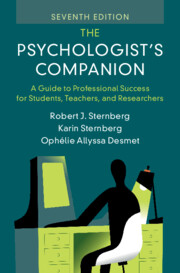Refine listing
Actions for selected content:
1299955 results in Books

The Rise of Econophysics
- A Connected History of Two Disciplines
- Coming soon
-
- Expected online publication date:
- March 2026
- Print publication:
- 31 March 2026
-
- Element
- Export citation

The Body Image Book for Girls
- Love Yourself and Grow Up Fearless
- Coming soon
-
- Expected online publication date:
- March 2026
- Print publication:
- 26 March 2026
-
- Book
- Export citation

Augustine and the Natural Law
- Coming soon
-
- Expected online publication date:
- March 2026
- Print publication:
- 01 May 2027
-
- Element
- Export citation

Attachment, Religion, and Spirituality
- Coming soon
-
- Expected online publication date:
- March 2026
- Print publication:
- 31 March 2026
-
- Element
- Export citation

Vienna
- A Musical History
- Coming soon
-
- Expected online publication date:
- March 2026
- Print publication:
- 31 March 2026
-
- Book
- Export citation
Music, Medicine, and the Neurobiology of Creativity
- Coming soon
-
- Expected online publication date:
- March 2026
- Print publication:
- 31 March 2026
-
- Textbook
- Export citation

Market Regulation and Private Law
- The Quest for Reconciliation in European Private Law
- Coming soon
-
- Expected online publication date:
- March 2026
- Print publication:
- 31 March 2026
-
- Book
- Export citation

Intra-dural Spinal Tumours with Acute Symptoms
- Coming soon
-
- Expected online publication date:
- March 2026
- Print publication:
- 31 March 2026
-
- Element
- Export citation

Networks
- Probability and Statistics
- Coming soon
-
- Expected online publication date:
- March 2026
- Print publication:
- 31 March 2026
-
- Book
- Export citation

Games, Markets, and Online Learning
- Coming soon
-
- Expected online publication date:
- March 2026
- Print publication:
- 31 March 2026
-
- Book
- Export citation

A Student's Guide to the Laws of Thermodynamics
- Coming soon
-
- Expected online publication date:
- March 2026
- Print publication:
- 31 March 2026
-
- Textbook
- Export citation
Empirical Bayes
- Some Tools, Rules, and Duals
- Coming soon
-
- Expected online publication date:
- March 2026
- Print publication:
- 31 March 2026
-
- Book
- Export citation

The Link That Divides
- Race, Empire, and the Quest for the Nicaragua Canal in the Nineteenth Century
- Coming soon
-
- Expected online publication date:
- March 2026
- Print publication:
- 31 March 2026
-
- Book
- Export citation

The Self in Premodern Thought
- From Antiquity to the Renaissance in Europe
- Coming soon
-
- Expected online publication date:
- March 2026
- Print publication:
- 31 March 2026
-
- Book
- Export citation

The Environmental Knowledge Commons
- Cases and Lessons for Knowledge Sharing
- Coming soon
-
- Expected online publication date:
- March 2026
- Print publication:
- 31 March 2026
-
- Book
- Export citation

Analytical Chemistry in Archaeology
- Coming soon
-
- Expected online publication date:
- March 2026
- Print publication:
- 31 March 2026
-
- Book
- Export citation
A Science of Concurrent Programs
- Coming soon
-
- Expected online publication date:
- March 2026
- Print publication:
- 31 March 2026
-
- Book
- Export citation

Disability and the Gothic
- The Nineteenth Century
- Coming soon
-
- Expected online publication date:
- March 2026
- Print publication:
- 31 March 2026
-
- Element
- Export citation

The Psychologist's Companion
- A Guide to Professional Success for Students, Teachers, and Researchers
- Coming soon
-
- Expected online publication date:
- March 2026
- Print publication:
- 31 March 2026
-
- Book
- Export citation

Entangled Life in Twenty-First-Century Fiction
- A Multi-scalar Poetics
- Coming soon
-
- Expected online publication date:
- March 2026
- Print publication:
- 31 March 2026
-
- Book
- Export citation
